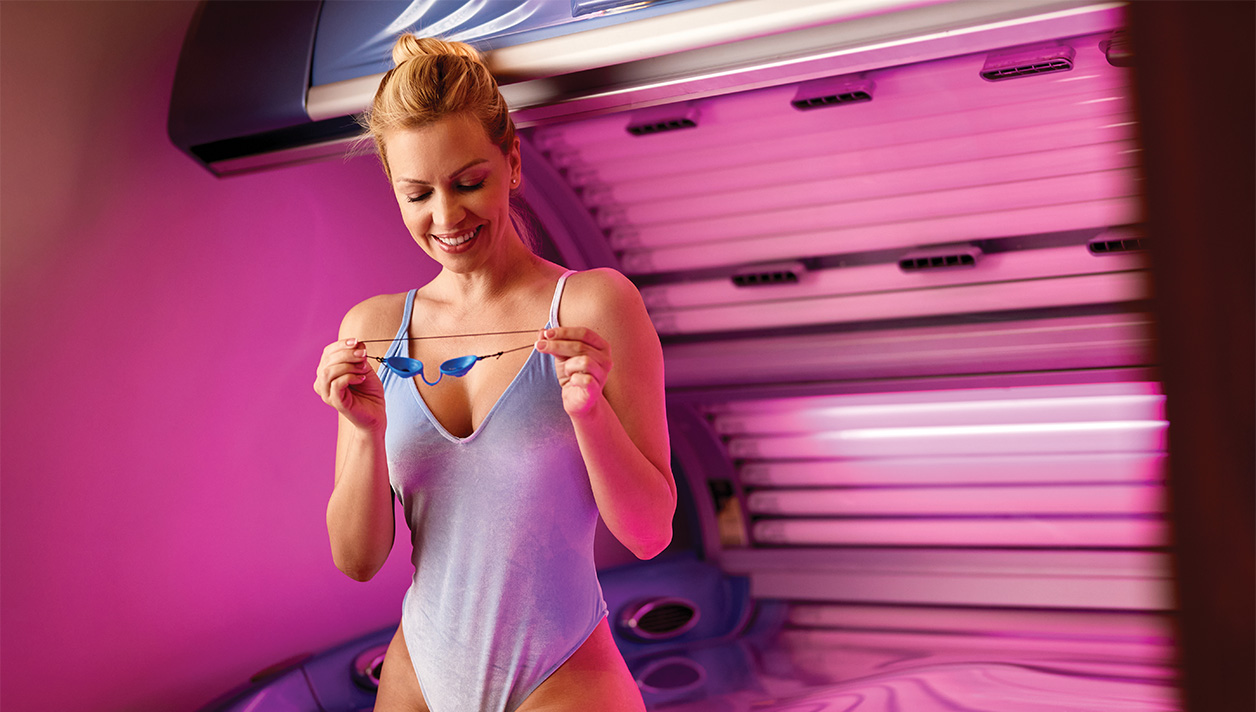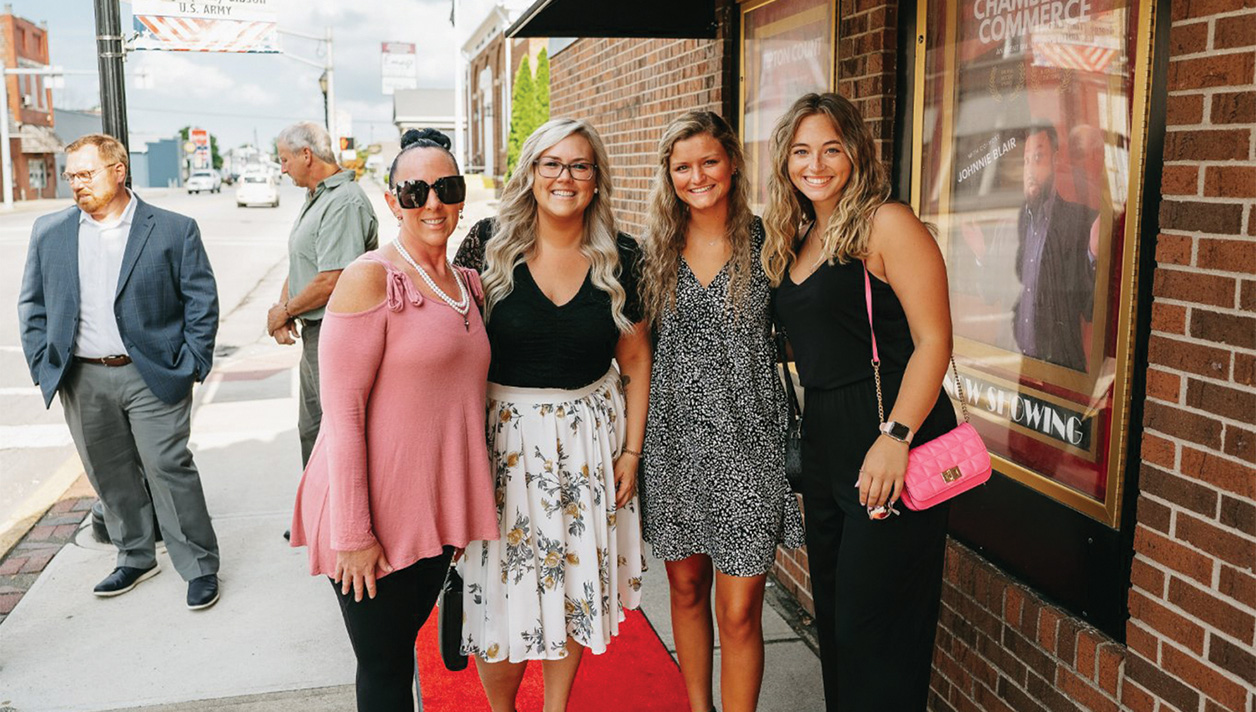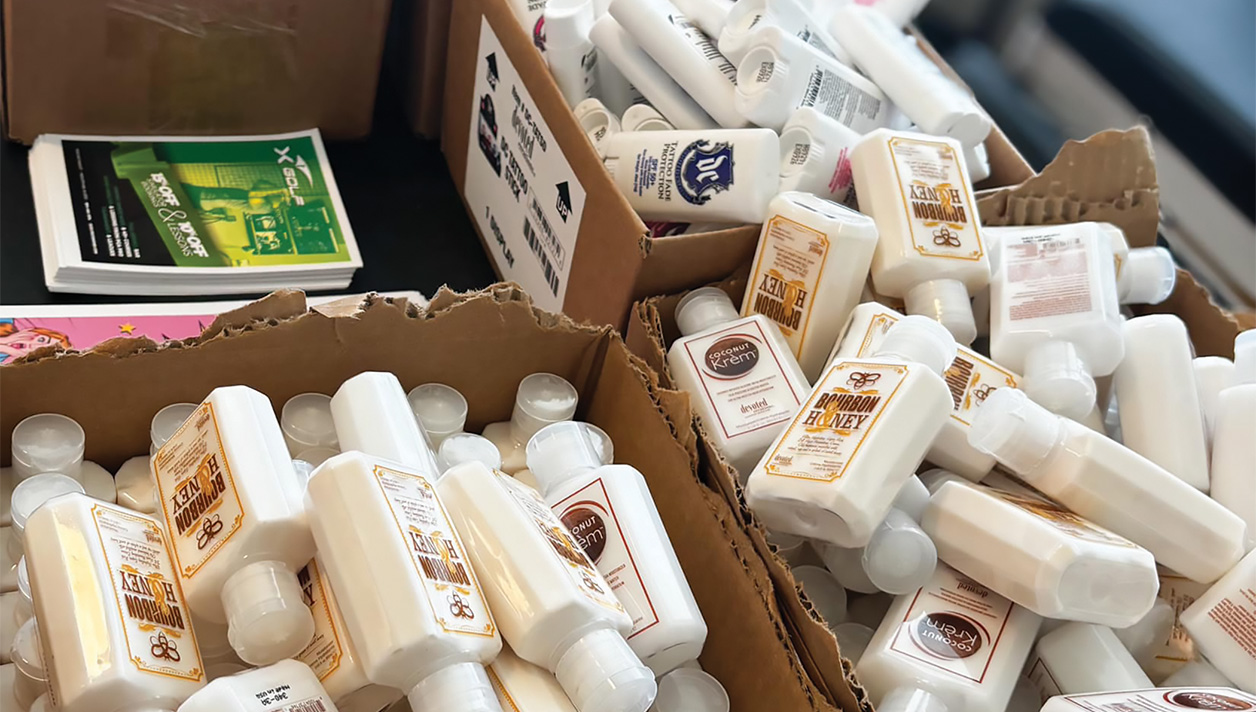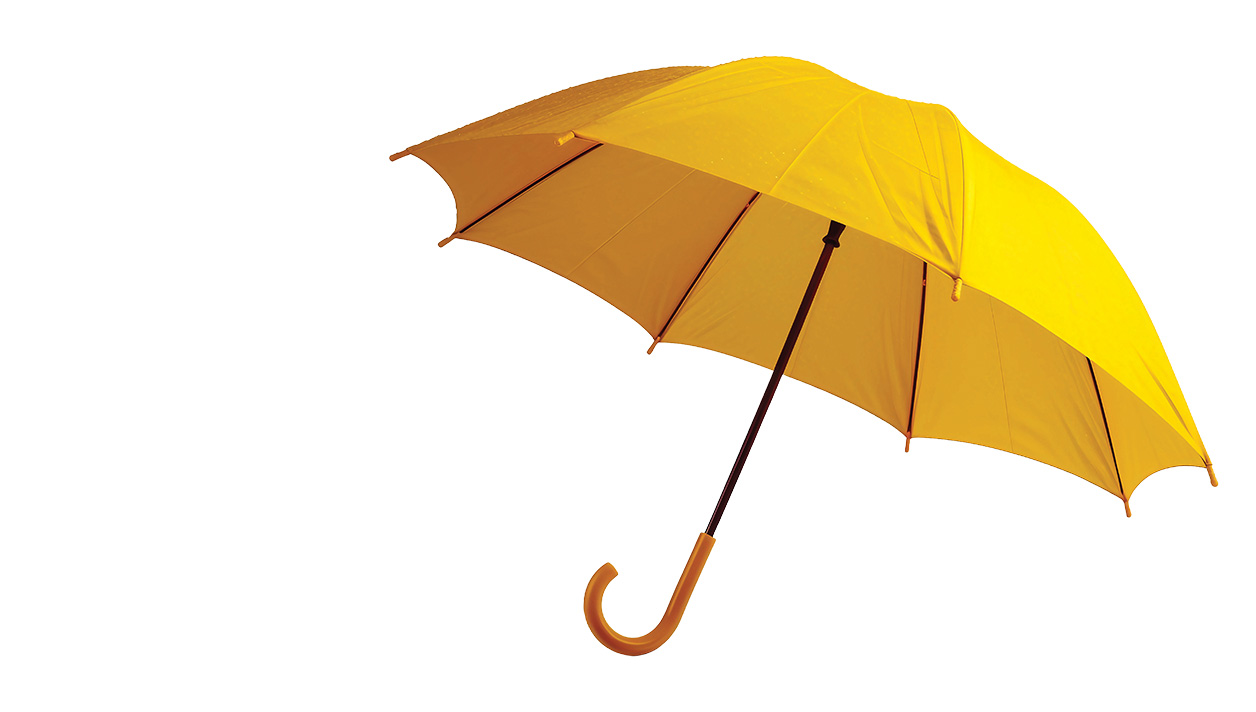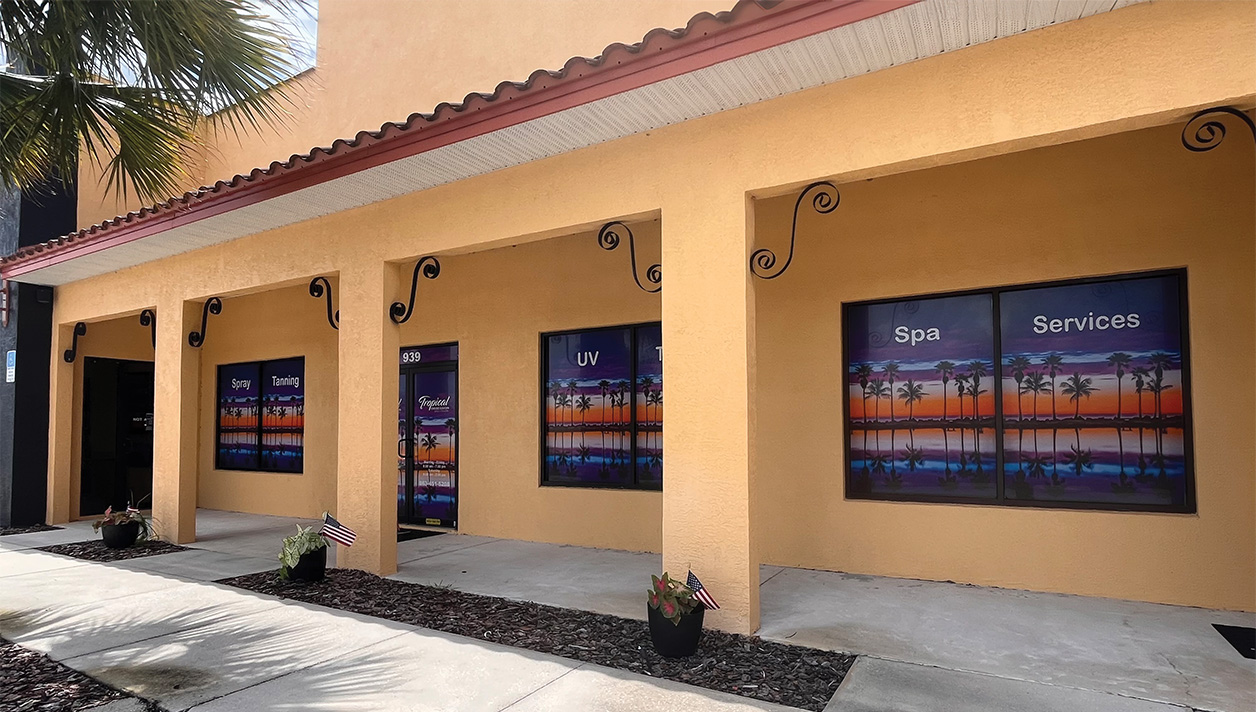[gap height=”15″]
Scenario: You’ve had a fantastic start to the year at your salon. You hired a great staff and had them trained to be tanning professionals through our Sun is Life® Training and Certification program. Customer traffic has been steady and trending up from last year. Referrals have increased. Social media has been kind to you and your facility. It’s Friday, the weather is nice and you’re looking forward to a strong weekend. As you head out for a bite to eat, you’re met at the door by a person with a large notebook in hand. Your deduction that this person is NOT a prospective customer is spot-on. Your salon is about to be inspected by an industry-regulating authority. So much for that lunch!
[gap height=”15″]
Since the U.S. inception of indoor tanning, the Food and Drug Administration has regulated our industry via 21CFR1040.20. This Code of Federal Regulations covers such areas as bed/booth timing devices, unit labeling, lamps (and their replacements) and recommended exposure schedules, emergency on/off switches, tanning session frequency and warnings. Salon particulars such as bed sanitization, timer locations, record-keeping, bed maintenance, certified training and education, registration fees and more, are areas that may be required by state and/or local agencies. For more information on indoor tanning from the FDA and this CFR, visit: goo.gl/fNy91m The FDA’s section, “Inspection and Field Testing of Radiation-Emitting Electronic Products” covers the specifics affecting the tanning equipment manufacturers and includes: … “The District Offices have the authority (delegated under 21 CFR 5.37 and 5.89) to make declarations of noncompliance and/or defect for sunlamp products. The field also has the authority to approve sunlamp manufacturer corrective action plans under 21 CFR 1004 and to grant exemptions (from notification and product repair) in accordance with 21 CFR 1003.31. Consult CDRH for assistance in determining appropriate enforcement action or other support. A copy of any letter issued to a manufacturer must be sent to HFZ-240.ch inspections.” Read more at goo.gl/DT55qS
[gap height=”15″]
So, does the FDA conduct day-to-day inspections of tanning salons? Currently, they do not, as the regulations primarily affect sunbed, booth and lamp manufacturers, as stated above. One of the often-missed questions on our Sun is Life® Certification exam is regarding tanning unit hygiene and sanitization. The T or F statement is: “The FDA requires that every bed must be sanitized after each use.” Of course, the statement is FALSE! This is not an FDA requirement. Sunbeds and booths are classified by the FDA as cosmetic, Class II medical devices. Claims that weaken the required warnings – or “health” claims – cannot be made by salon operators or staff and are monitored by the Federal Trade Commission. From the FTC website: “The Federal Trade Commission (FTC) and the Food and Drug Administration (FDA) enforce laws dealing with tanning devices. The FTC investigates false, misleading, and deceptive advertising claims about the devices; the FDA enforces regulations that deal with the labels on the devices.” For more info, visit goo.gl/RFN8tu
[gap height=”15″]
In fact, there are salons and organizations across the country that have run afoul of these laws and have been fined. As a reminder, Sun is Life Training has a section devoted to avoidance of health claims by salon operators. It’s not about whether there is research that supports the positive effects of UV exposure, because there is certainly plenty. It’s that current FDA regulations forbid using them to promote indoor tanning services or businesses. States such as North Carolina explicitly forbid making such claims.
[gap height=”15″]
Speaking of North Carolina, I have had the pleasure of participating in several regulatory meetings in Raleigh. I have also had the pleasure of interacting with Catherine Rosfjord, the Radon and Tanning Branch Manager of the Radiation Protection Section, North Carolina Department of Health and Human Services. Several years ago, Ms. Rosfjord was very helpful in answering questions I had while preparing to offer North Carolina salon operators our Sun is Life Certification program in an online version in North Carolina. Their regulations are extremely thorough and clearly one of the reasons that we chose to put our training program through the NC regulatory process for acceptance first. I contacted Catherine to give salon operators some perspective on North Carolina regulations that should also provide insight for those operating in all states that have indoor tanning restrictions. Even if your state doesn’t currently have regs, that can change. It’s best to be prepared.
[gap height=”15″][gap height=”15″]
IST: How can a salon operator best prepare his/her facility for an inspection?
[gap height=”15″]
Rosfjord: The NC Tanning Program maintains an inspection checklist on its website, ncradiation.net/Tanning/guides.htm This is an excellent checklist to assist facilities in preparing for inspection. North Carolina facilities should be familiar with the NC tanning regulations, found at ncradiation.net/Tanning/documents/New%20Tanning%20Rules% 202016.pdf
[gap height=”15″][gap height=”15″]
IST: How should a salon operator interact with an on-site inspector?
[gap height=”15″]
Rosfjord: Joe, the inspector’s job is to protect public safety. The inspectors want to work with operators to see that violations are corrected. It is required that facility owners and operators allow inspectors into their facility whenever the inspector arrives (usually unannounced). Inspectors realize that facility owners are operating a business and will never interrupt a tanning session to inspect a bed. They will also avoid interruption of an operator who is assisting customers. Being familiar with the agency inspection checklist and regulations, providing requested documents and answering all of the inspector’s questions will help facilitate an effective inspection.
[gap height=”15″][gap height=”15″]
IST: What seem to be the most frequent violations? Can you share
the top three?
[gap height=”15″]
Rosfjord: The top-cited violation is for missing or improper labels on the sunbeds (10A NCAC 15 .1415 (a)). In 2016, this rule was amended to require two extra bed labels. The FDA and North Carolina both require their own label relaying the prohibition of tanning device use by people under 18 years of age. One of the more severe violations frequently cited is failure to have a certified operator on duty (10A NCAC 15 .1418 (i) and (j)). This violation will often result in a penalty.
[gap height=”15″][gap height=”15″]
IST: Have indoor tanning certification classes increased the level of professionalism? If so, how? Do you think all states should have mandatory training requirements?
[gap height=”15″]
Rosfjord: When correctly implemented, accurate training improves public health and safety. As to what other states should do, we will leave that determination to those states.
[gap height=”15″][gap height=”15″]
IST: I agree. Accurate employee training does improve public health and safety. In addition, state regulations force salons to comply and make for an “even playing field.”
[gap height=”15″]
IST: How long has North Carolina regulated indoor tanning facilities?
[gap height=”15″]
Rosfjord: The regulations were first developed in 1989.
[gap height=”15″][gap height=”15″]
IST: As I recall, NC was one of the first states to issue indoor tanning regs. In fact, the first salon training class that I taught was in North Carolina back in the early 90s. Your “regs” have now existed for almost two decades. Can you gauge the success of your program?
[gap height=”15″]
Rosfjord: The NC Tanning Program has been highly effective in working with facilities to protect the public health and the occupational worker from harmful effects of UV radiation. This success has been achieved by focusing on educating the regulated community on safety culture and compliance with the regulations.
[gap height=”15″]
IST: Catherine, thanks for sharing some great information for our readers. It certainly encourages salon operators to “do the right thing!”
[gap height=”15″][gap height=”15″]
Even if your state doesn’t currently have tanning industry regs, that can change. It’s best to be prepared.


